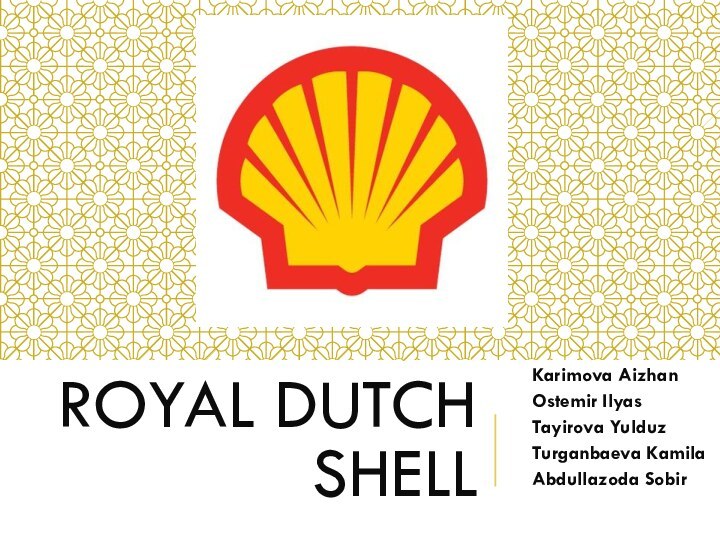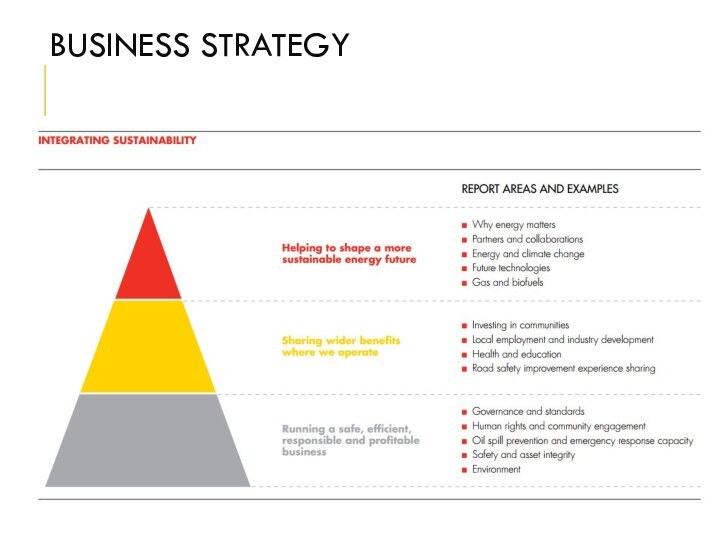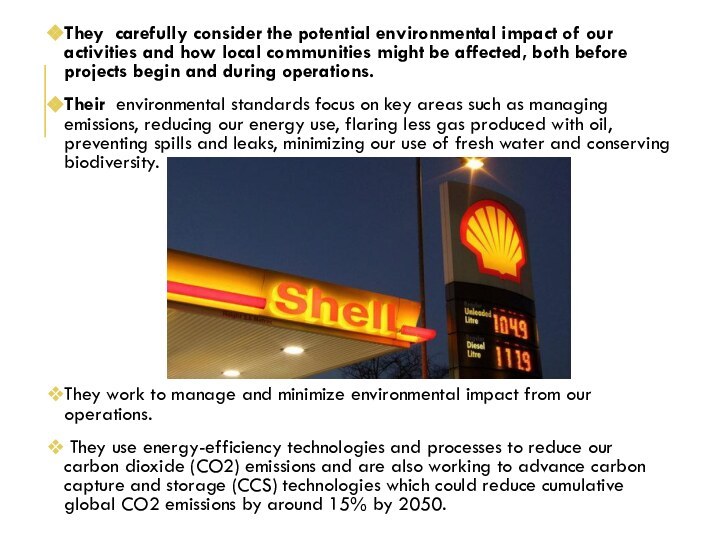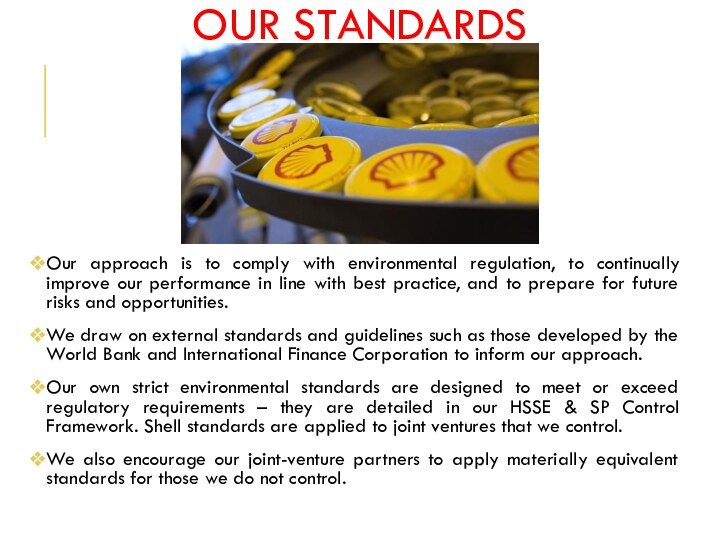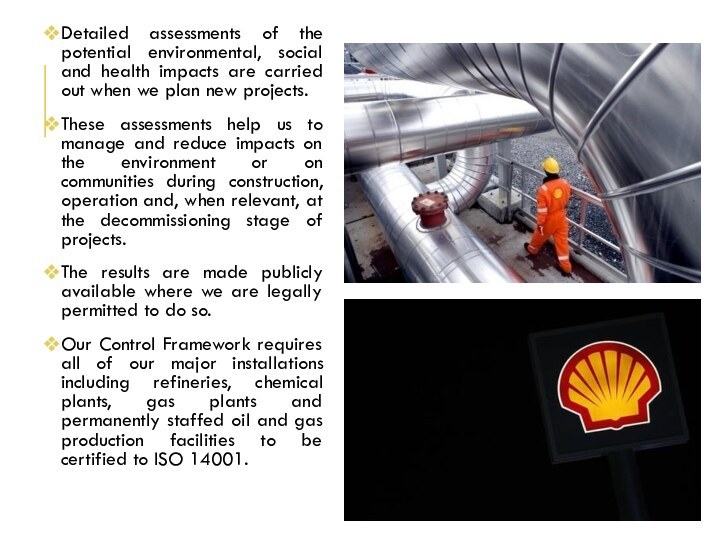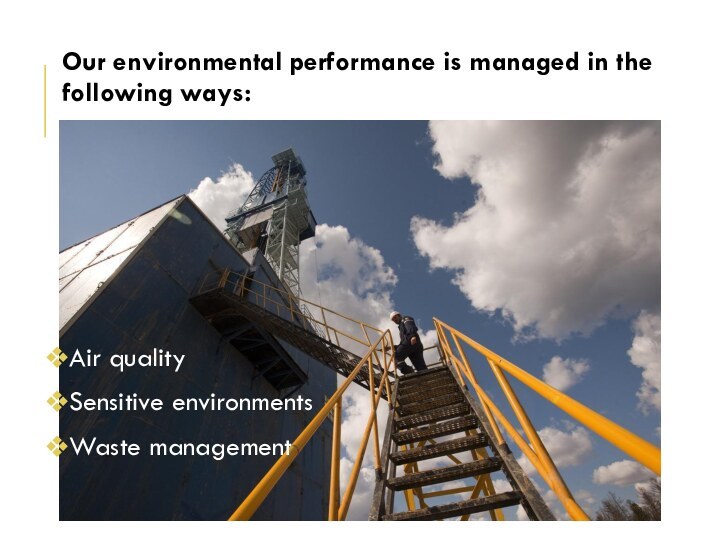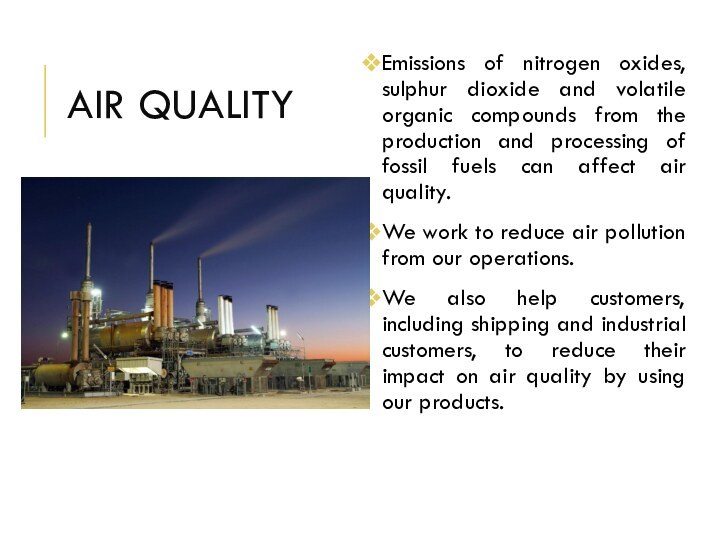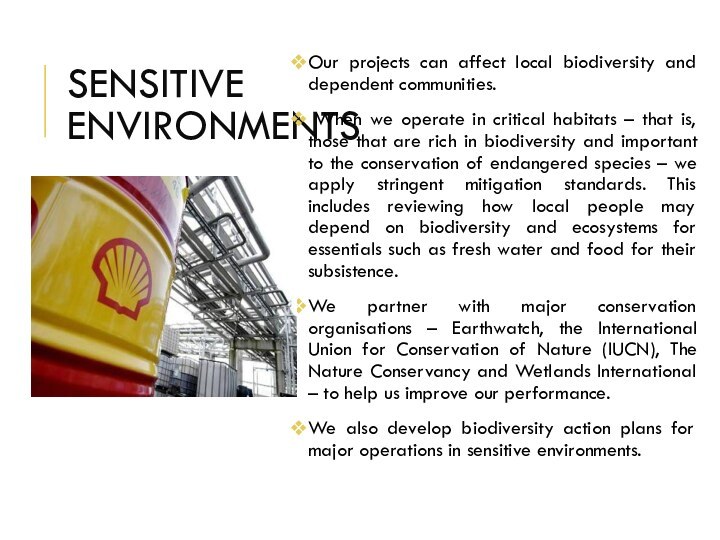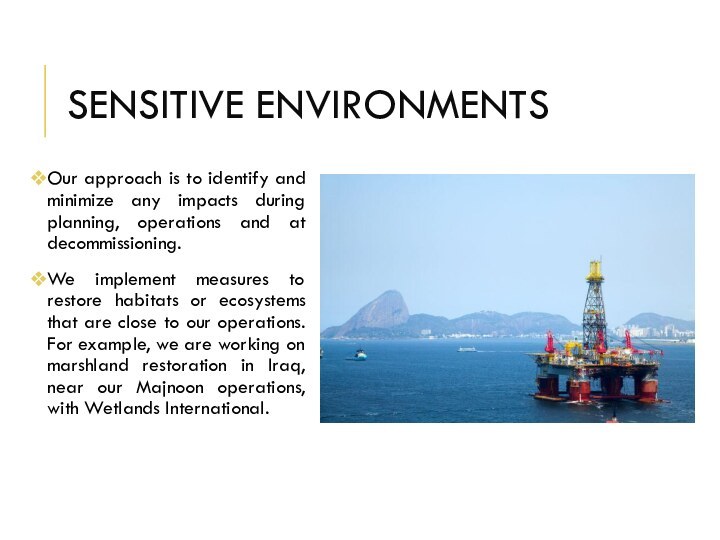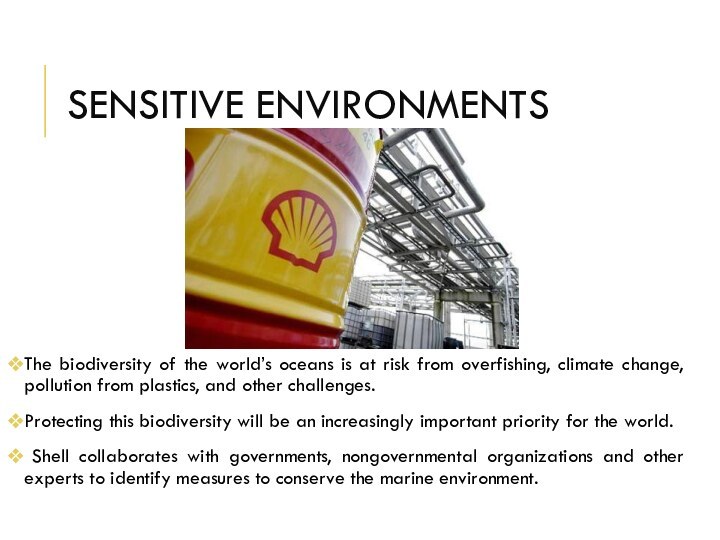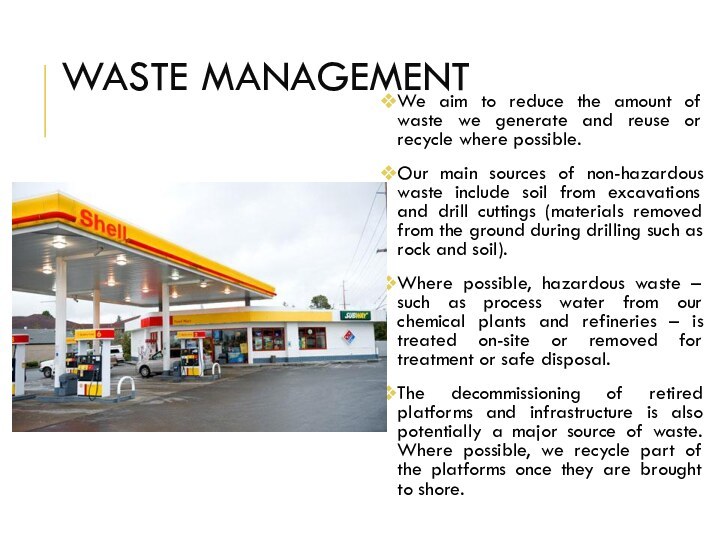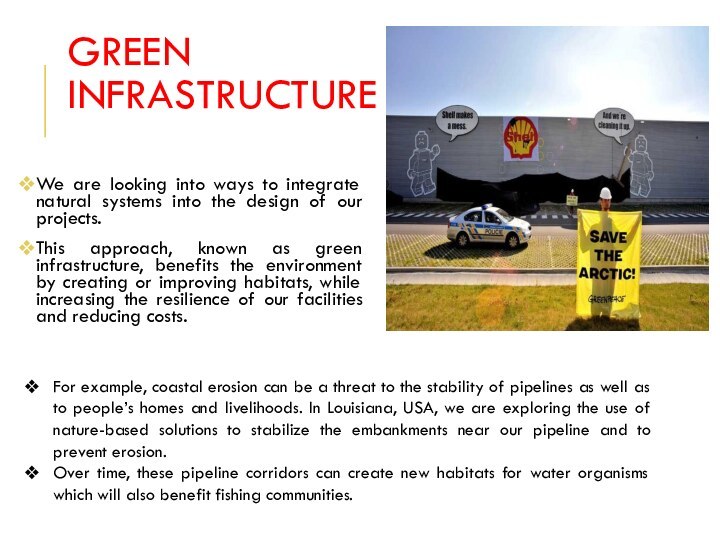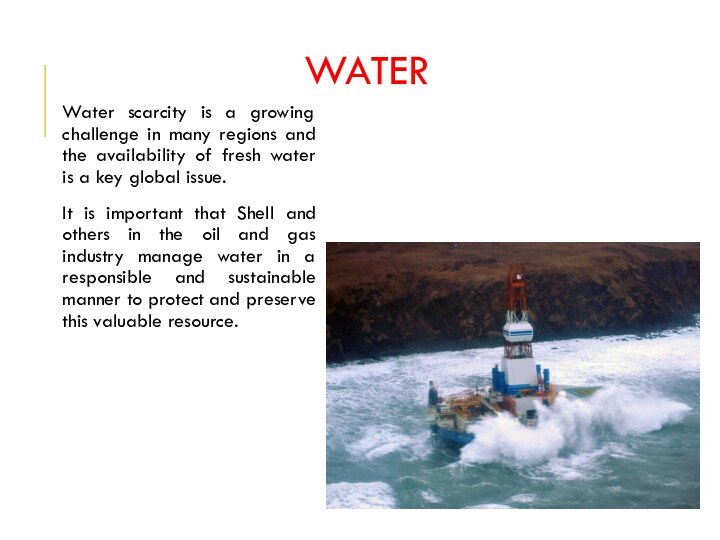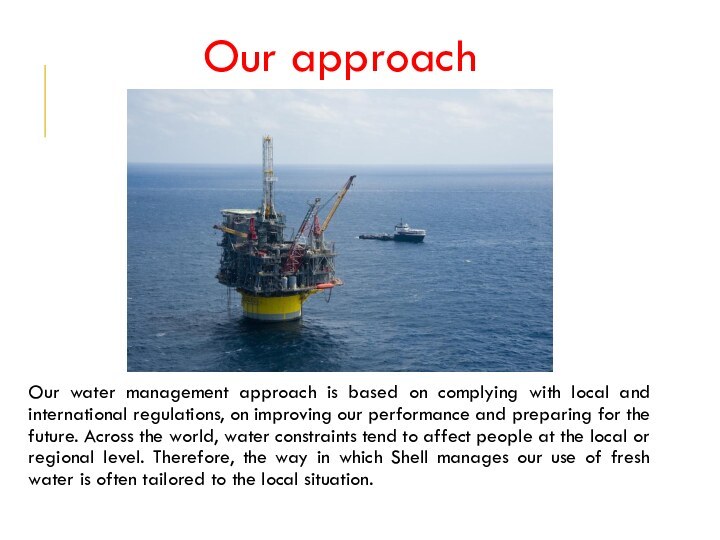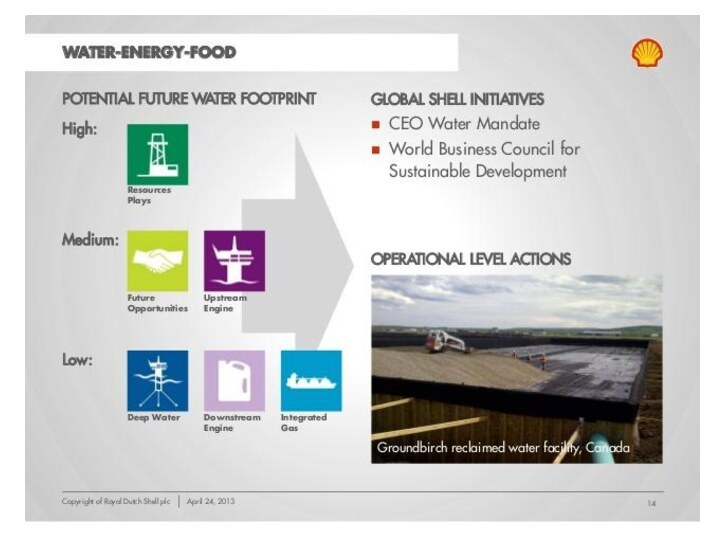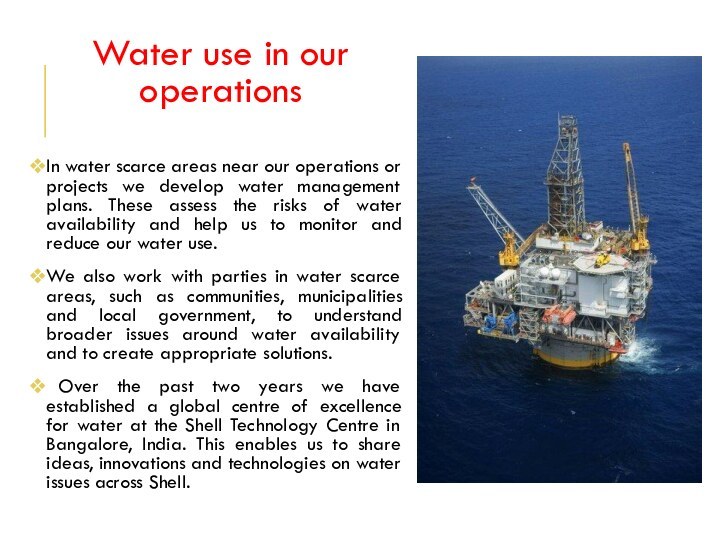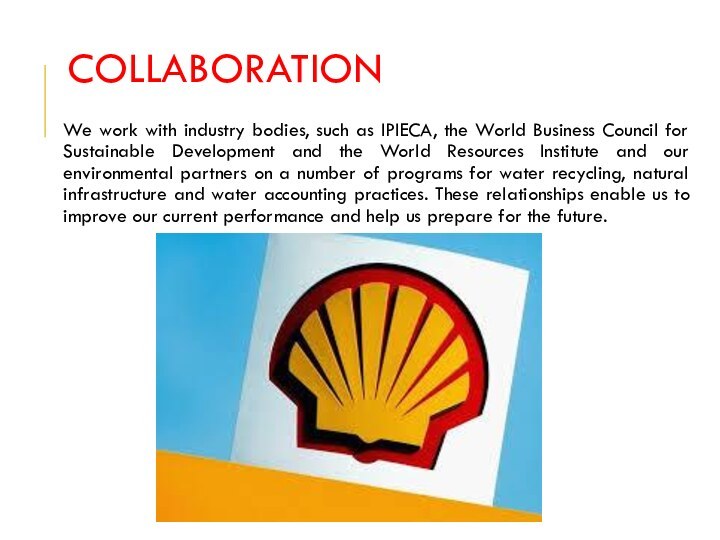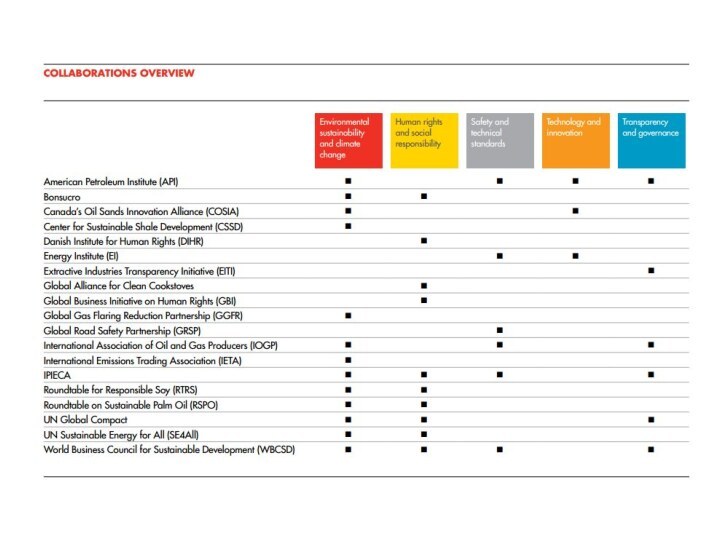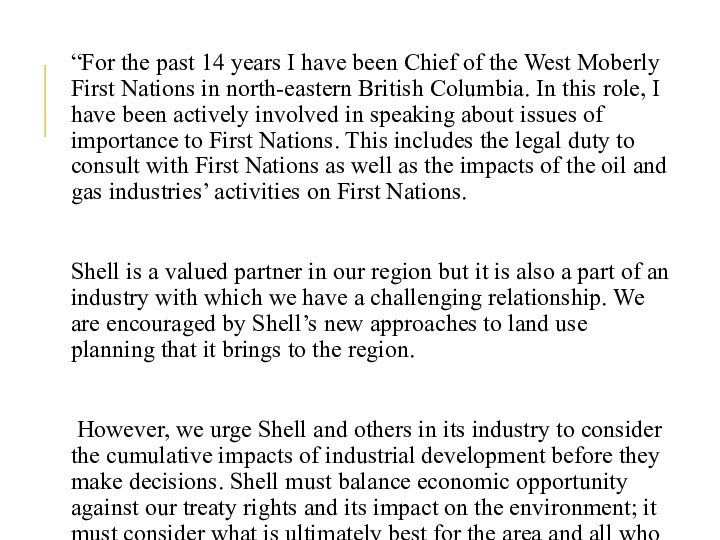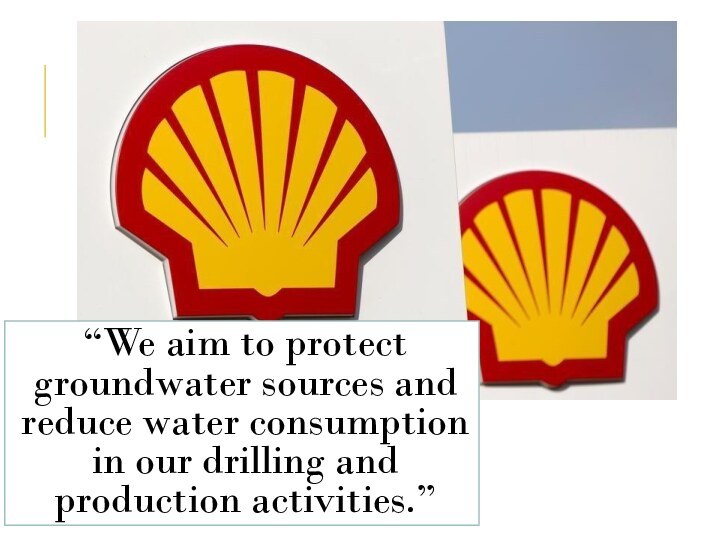Слайд 3
They carefully consider the potential environmental impact of
our activities and how local communities might be affected,
both before projects begin and during operations.
Their environmental standards focus on key areas such as managing emissions, reducing our energy use, flaring less gas produced with oil, preventing spills and leaks, minimizing our use of fresh water and conserving biodiversity.
They work to manage and minimize environmental impact from our operations.
They use energy-efficiency technologies and processes to reduce our carbon dioxide (CO2) emissions and are also working to advance carbon capture and storage (CCS) technologies which could reduce cumulative global CO2 emissions by around 15% by 2050.
Слайд 4
OUR STANDARDS
Our approach is to comply with environmental
regulation, to continually improve our performance in line with
best practice, and to prepare for future risks and opportunities.
We draw on external standards and guidelines such as those developed by the World Bank and International Finance Corporation to inform our approach.
Our own strict environmental standards are designed to meet or exceed regulatory requirements – they are detailed in our HSSE & SP Control Framework. Shell standards are applied to joint ventures that we control.
We also encourage our joint-venture partners to apply materially equivalent standards for those we do not control.
Слайд 5
Detailed assessments of the potential environmental, social and
health impacts are carried out when we plan new
projects.
These assessments help us to manage and reduce impacts on the environment or on communities during construction, operation and, when relevant, at the decommissioning stage of projects.
The results are made publicly available where we are legally permitted to do so.
Our Control Framework requires all of our major installations including refineries, chemical plants, gas plants and permanently staffed oil and gas production facilities to be certified to ISO 14001.
Слайд 6
Our environmental performance is managed in the following
ways:
Air quality
Sensitive environments
Waste management
Слайд 7
Air quality
Emissions of nitrogen oxides, sulphur dioxide and
volatile organic compounds from the production and processing of
fossil fuels can affect air quality.
We work to reduce air pollution from our operations.
We also help customers, including shipping and industrial customers, to reduce their impact on air quality by using our products.
Слайд 8
Sensitive environments
Our projects can affect local biodiversity and
dependent communities.
When we operate in critical habitats –
that is, those that are rich in biodiversity and important to the conservation of endangered species – we apply stringent mitigation standards. This includes reviewing how local people may depend on biodiversity and ecosystems for essentials such as fresh water and food for their subsistence.
We partner with major conservation organisations – Earthwatch, the International Union for Conservation of Nature (IUCN), The Nature Conservancy and Wetlands International – to help us improve our performance.
We also develop biodiversity action plans for major operations in sensitive environments.
Слайд 9
Sensitive environments
Our approach is to identify and minimize
any impacts during planning, operations and at decommissioning.
We
implement measures to restore habitats or ecosystems that are close to our operations. For example, we are working on marshland restoration in Iraq, near our Majnoon operations, with Wetlands International.
Слайд 10
Sensitive environments
The biodiversity of the world’s oceans is
at risk from overfishing, climate change, pollution from plastics,
and other challenges.
Protecting this biodiversity will be an increasingly important priority for the world.
Shell collaborates with governments, nongovernmental organizations and other experts to identify measures to conserve the marine environment.
Слайд 11
Waste management
We aim to reduce the amount of
waste we generate and reuse or recycle where possible.
Our main sources of non-hazardous waste include soil from excavations and drill cuttings (materials removed from the ground during drilling such as rock and soil).
Where possible, hazardous waste – such as process water from our chemical plants and refineries – is treated on-site or removed for treatment or safe disposal.
The decommissioning of retired platforms and infrastructure is also potentially a major source of waste. Where possible, we recycle part of the platforms once they are brought to shore.
Слайд 12
GREEN INFRASTRUCTURE
We are looking into ways to integrate
natural systems into the design of our projects.
This
approach, known as green infrastructure, benefits the environment by creating or improving habitats, while increasing the resilience of our facilities and reducing costs.
For example, coastal erosion can be a threat to the stability of pipelines as well as to people’s homes and livelihoods. In Louisiana, USA, we are exploring the use of nature-based solutions to stabilize the embankments near our pipeline and to prevent erosion.
Over time, these pipeline corridors can create new habitats for water organisms which will also benefit fishing communities.
Слайд 13
WATER
Water scarcity is a growing challenge in many
regions and the availability of fresh water is a
key global issue.
It is important that Shell and others in the oil and gas industry manage water in a responsible and sustainable manner to protect and preserve this valuable resource.
Слайд 14
Our approach
Our water management approach is based on
complying with local and international regulations, on improving our
performance and preparing for the future. Across the world, water constraints tend to affect people at the local or regional level. Therefore, the way in which Shell manages our use of fresh water is often tailored to the local situation.
Слайд 16
Water use in our operations
In water scarce areas
near our operations or projects we develop water management
plans. These assess the risks of water availability and help us to monitor and reduce our water use.
We also work with parties in water scarce areas, such as communities, municipalities and local government, to understand broader issues around water availability and to create appropriate solutions.
Over the past two years we have established a global centre of excellence for water at the Shell Technology Centre in Bangalore, India. This enables us to share ideas, innovations and technologies on water issues across Shell.
Слайд 17
Collaboration
We work with industry bodies, such as IPIECA,
the World Business Council for Sustainable Development and the
World Resources Institute and our environmental partners on a number of programs for water recycling, natural infrastructure and water accounting practices. These relationships enable us to improve our current performance and help us prepare for the future.
Слайд 19
“For the past 14 years I have been
Chief of the West Moberly First Nations in north-eastern
British Columbia. In this role, I have been actively involved in speaking about issues of importance to First Nations. This includes the legal duty to consult with First Nations as well as the impacts of the oil and gas industries’ activities on First Nations.
Shell is a valued partner in our region but it is also a part of an industry with which we have a challenging relationship. We are encouraged by Shell’s new approaches to land use planning that it brings to the region.
However, we urge Shell and others in its industry to consider the cumulative impacts of industrial development before they make decisions. Shell must balance economic opportunity against our treaty rights and its impact on the environment; it must consider what is ultimately best for the area and all who live here.”
